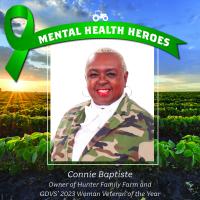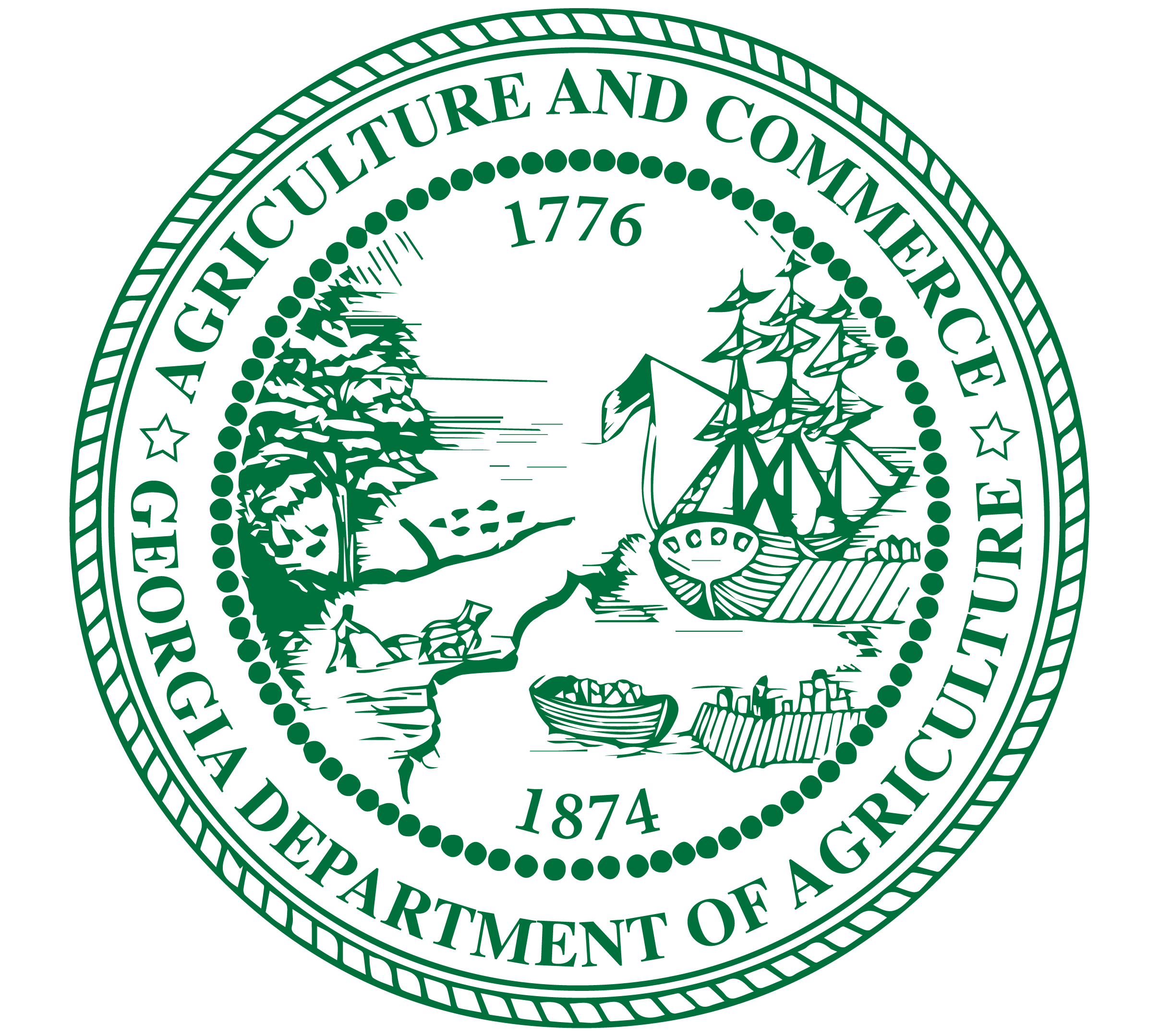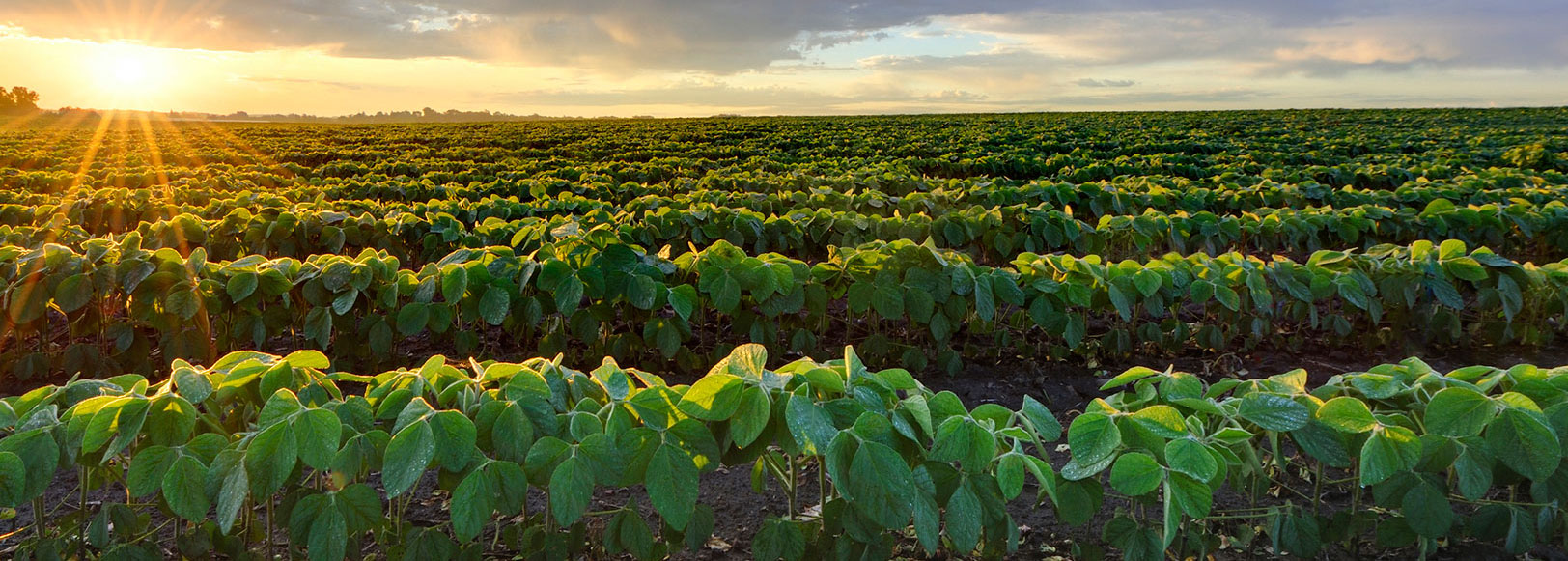
On Monday, May 27th, 2024, as a nation, we honored the brave on Memorial Day, so for this week's Mental Health Heroes feature, we're spotlighting Connie Baptiste, an Air Force veteran, fourth-generation farmer, owner of Hunter Family Farm, and GDVS’ 2023 Woman Veteran of the Year, who has dedicated herself to providing mental health resources to veterans and farmers alike. As a role model within the African American community, Connie Baptiste is a powerhouse who works daily to help all those around her. This conversation showcases her background, work, and beliefs on improving mental health for all Georgians.
What drew you to focus on the mental health of Georgia's agricultural community?
As a fourth-generation farmer and a 20-year Air Force veteran, I have personally experienced the profound impact of sudden, life-altering events. Whether it's a service-connected injury or natural disasters affecting the farm, both military service and farming demand resilience and discipline. From early mornings to rigorous routines, the similarities between the two are striking.
Being a Black woman in both the military and farming exposed me to unique stressors, and developing a mental wellness plan for myself proved crucial in navigating life in both spaces. Both farmers and military personnel give so much, yet our welfare is often overlooked. As an advocate for mental wellness for my military brothers and sisters, I recognized the need for this same advocacy for my agricultural family. Inclusion matters, and I am committed to changing the face of mental wellness in our community. This means I have to be transparent and vocal about mental wellness, showing the good and the bad. I am here to shift paradigms.
Why is it important to focus on farmers?
Focusing on farmers is crucial because our roles encompass much more than most people realize. Farmers are project managers, entrepreneurs, accountants, mechanics, chemists, and business owners, and the list goes on. Yet, many don't truly understand what farming entails or the diverse spaces we occupy.
It's our responsibility to share the story of farmers, our families, and our agriculture communities. We must work to bridge the gap and change the narrative around farming, showcasing its many facets. It's vital to highlight the true demographics of farming and ensure that inclusion is a priority, honoring everyone's role in our profession.
We can't focus on farming without focusing on the mental well-being of their families. Focusing on the WHOLE farmer, family included, will bring some of the younger generation back to the profession. Coping and wellness plans for the whole family balance some of the stress of being an agricultural family.
How can we help people in our community that may be struggling with their mental health?
In the African American community, discussing mental wellness is often considered taboo. When I realized I needed to prioritize my mental wellness, I saw that this conversation was missing in my community. I became a certified peer support specialist to change the face of mental wellness and mental health. I wanted women, veterans, and minority farmers to see me speaking openly about these issues because inclusion matters.
To help those struggling with mental health in our community, we need to challenge preconceived notions and meet people where they are, out in the fields, in the barns, and at church. We must adapt to farmers' schedules and truly understand their lived experiences. Creating safe spaces is essential, and the best way to do that is by allowing farmers to see themselves reflected in us.
When working with veterans, the first two questions they are going to ask are: have you served and which branch? Farmers are no different; they need to know that you are part of their community before they will welcome you into their sacred space. Being a part of the farming family, we can create the trust and the safe spaces needed to address mental wellness openly. Changing the mental health narrative in the agriculture community is an inside job, and it has to be one of us insiders that is a part of the change.
If you could only choose one mental health tip or piece of advice to share, what would it be?
If I could share just one piece of mental health advice, it would be: It's okay not to be okay. In the farming community, we often see ourselves as superhuman, believing we can do everything. There are times when we converse with Mother Nature and times when we argue with her, but ultimately, she always wins. We need to permit ourselves not to be okay. By taking the time to put systems in place for navigating rough times and sharing these tools, we can help farmers work through the challenges of life.
What is your favorite way to maintain your mental health?
My favorite way to maintain my mental health is by learning to make time for downtime and discovering what brings me joy. This is an ongoing journey because the life of a farmer is constantly changing. It's also essential to build communities that value downtime and family, demonstrating what trying to live a balanced life looks like.
For me, reading and writing are crucial, as well as being in the kitchen; as a chef, keeping my culinary skills sharp is always a way to take care of myself. It's important to show others that we can smile and enjoy life. Farming is hard work, mentally and physically; it's not only what we do, it's who we are. It's not just about what we say; it's about living in a way that others can see us walking the walk and talking the talk, and it's not always perfect; it's just life.


